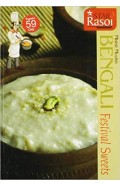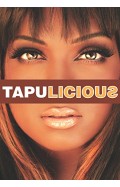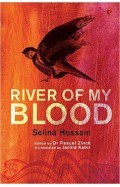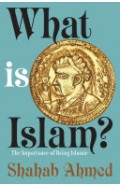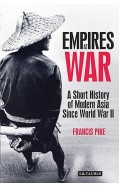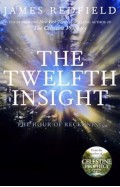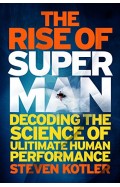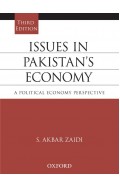Muslim Women and Misogyny - Myths and Misunderstandings
By: Samia Rahman
-
Rs 5,035.50
- Rs 5,595.00
- 10%
You save Rs 559.50.
Due to constant currency fluctuation, prices are subject to change with or without notice.
Muslim women are among the most fetishised and objectified groups in society today. Much is assumed and imagined about their lives, and it is all too easy to succumb to orientalist myths. For too long, Muslim women have been reduced to two-dimensional stereotypes: empowered heroines rejecting patriarchal religious teachings, or victims of a misogyny believed to run deep within Islam. But why is this neatly packaged view so pervasive? Are oppression and subjugation actually so central to Muslim women’s lives? How is this misogyny influenced by white supremacy and Islamophobia? And where do the biggest threats to Muslim women’s freedom and safety really come from?
In this bold new book, Samia Rahman explores the relationships between misogyny and Muslim women’s experiences in Britain today, untangling complex issues such as Muslim feminism, representation, toxic masculinity, marriage and sexuality. Based on extensive interviews with both women and men from Muslim communities, she offers a powerful, much-needed response to the misappropriation of female voices, revealing the many faces of Muslim womanhood within the UK.
Muslim women are among the most fetishised and objectified groups in society today. Much is assumed and imagined about their lives, and it is all too easy to succumb to orientalist myths. For too long, Muslim women have been reduced to two-dimensional stereotypes: empowered heroines rejecting patriarchal religious teachings, or victims of a misogyny believed to run deep within Islam. But why is this neatly packaged view so pervasive? Are oppression and subjugation actually so central to Muslim women’s lives? How is this misogyny influenced by white supremacy and Islamophobia? And where do the biggest threats to Muslim women’s freedom and safety really come from?
In this bold new book, Samia Rahman explores the relationships between misogyny and Muslim women’s experiences in Britain today, untangling complex issues such as Muslim feminism, representation, toxic masculinity, marriage and sexuality. Based on extensive interviews with both women and men from Muslim communities, she offers a powerful, much-needed response to the misappropriation of female voices, revealing the many faces of Muslim womanhood within the UK.
Muslim Women and Misogyny - Myths and Misunderstandings
By: Samia Rahman
Rs 5,035.50 Rs 5,595.00 Ex Tax :Rs 5,035.50
Zubin Mehta: A Musical Journey (An Authorized Biography)
By: VOID - Bakhtiar K. Dadabhoy
Rs 892.50 Rs 1,050.00 Ex Tax :Rs 892.50
Imran Khan: Myth Of The Pakistani Middle-Class
By: Nadeem Farooq Paracha
Rs 1,615.50 Rs 1,795.00 Ex Tax :Rs 1,615.50
Power - The Essential Works of Michel Foucault 1954-1984
By: Michel Foucault
Rs 2,965.50 Rs 3,295.00 Ex Tax :Rs 2,965.50
Fast Food Genocide - How Processed Food is Killing Us and What We Can Do About It
By: Joel Fuhrman
Rs 3,055.50 Rs 3,395.00 Ex Tax :Rs 3,055.50
The Clash of Civilizations and the Remaking of World Order
By: Samuel P. Huntington
Rs 2,695.50 Rs 2,995.00 Ex Tax :Rs 2,695.50
The Origins of Political Order From Prehuman Times to the French RevolutioN
By: Francis Fukuyama
Rs 4,045.50 Rs 4,495.00 Ex Tax :Rs 4,045.50
Manning Up: How the Rise of Women Has Turned Men into Boys
By: Kay Hymowitz
Rs 845.75 Rs 995.00 Ex Tax :Rs 845.75
The Obama Syndrome: Surrender At Home War Abroad
By: Tariq Ali
Rs 1,100.75 Rs 1,295.00 Ex Tax :Rs 1,100.75
The Quest For Meaning: Developing A Philosophy Of Pluralism
By: Tariq Ramadan
Rs 1,185.75 Rs 1,395.00 Ex Tax :Rs 1,185.75
Imran Khan: Myth Of The Pakistani Middle-Class
By: Nadeem Farooq Paracha
Rs 1,615.50 Rs 1,795.00 Ex Tax :Rs 1,615.50
Power - The Essential Works of Michel Foucault 1954-1984
By: Michel Foucault
Rs 2,965.50 Rs 3,295.00 Ex Tax :Rs 2,965.50
Fast Food Genocide - How Processed Food is Killing Us and What We Can Do About It
By: Joel Fuhrman
Rs 3,055.50 Rs 3,395.00 Ex Tax :Rs 3,055.50
The Clash of Civilizations and the Remaking of World Order
By: Samuel P. Huntington
Rs 2,695.50 Rs 2,995.00 Ex Tax :Rs 2,695.50
Odysseus Trojan Trick! (Hopeless Heroes, Book 8)
By: Stella Tarakson
Rs 1,147.50 Rs 2,295.00 Ex Tax :Rs 1,147.50
What Is Islam? - The Importance of Being Islamic
By: Shahab Ahmed
Rs 8,095.50 Rs 8,995.00 Ex Tax :Rs 8,095.50
Hundred Years of Sindhi Short Stories 1914-2014
By: Madad Ali Sindhi
Rs 850.00 Rs 1,000.00 Ex Tax :Rs 850.00
Empires at War - A Short History of Modern Asia Since World War II
By: Francis Pike
Rs 1,058.25 Rs 1,245.00 Ex Tax :Rs 1,058.25
Spice Road: an epic young adult fantasy set in an Arabian-inspired land (The Spice Road Trilogy)
By: Maiya Ibrahim
Rs 3,145.50 Rs 3,495.00 Ex Tax :Rs 3,145.50
Puffin Cover to Cover Story Tape: Owl Who Was Afraid of the Dark
By: Jill Tomlinson
Rs 1,100.75 Rs 1,295.00 Ex Tax :Rs 1,100.75
The Rise of Superman: Decoding the Science of Ultimate Human Performance
By: Steven Kotler
Rs 2,695.50 Rs 2,995.00 Ex Tax :Rs 2,695.50
Issues in Pakistan's Economy - A Political Economy Perspective
By: S. Akbar Zaidi
Rs 2,065.50 Rs 2,295.00 Ex Tax :Rs 2,065.50
Zubin Mehta: A Musical Journey (An Authorized Biography)
By: VOID - Bakhtiar K. Dadabhoy
Rs 892.50 Rs 1,050.00 Ex Tax :Rs 892.50
Muslim Women and Misogyny - Myths and Misunderstandings
By: Samia Rahman
Rs 5,035.50 Rs 5,595.00 Ex Tax :Rs 5,035.50
Imran Khan: Myth Of The Pakistani Middle-Class
By: Nadeem Farooq Paracha
Rs 1,615.50 Rs 1,795.00 Ex Tax :Rs 1,615.50
Power - The Essential Works of Michel Foucault 1954-1984
By: Michel Foucault
Rs 2,965.50 Rs 3,295.00 Ex Tax :Rs 2,965.50
Fast Food Genocide - How Processed Food is Killing Us and What We Can Do About It
By: Joel Fuhrman
Rs 3,055.50 Rs 3,395.00 Ex Tax :Rs 3,055.50
The Clash of Civilizations and the Remaking of World Order
By: Samuel P. Huntington
Rs 2,695.50 Rs 2,995.00 Ex Tax :Rs 2,695.50














-120x187.jpg?q6)






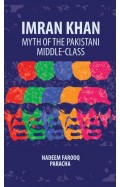
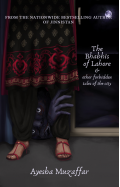



-120x187.jpg?q6)







